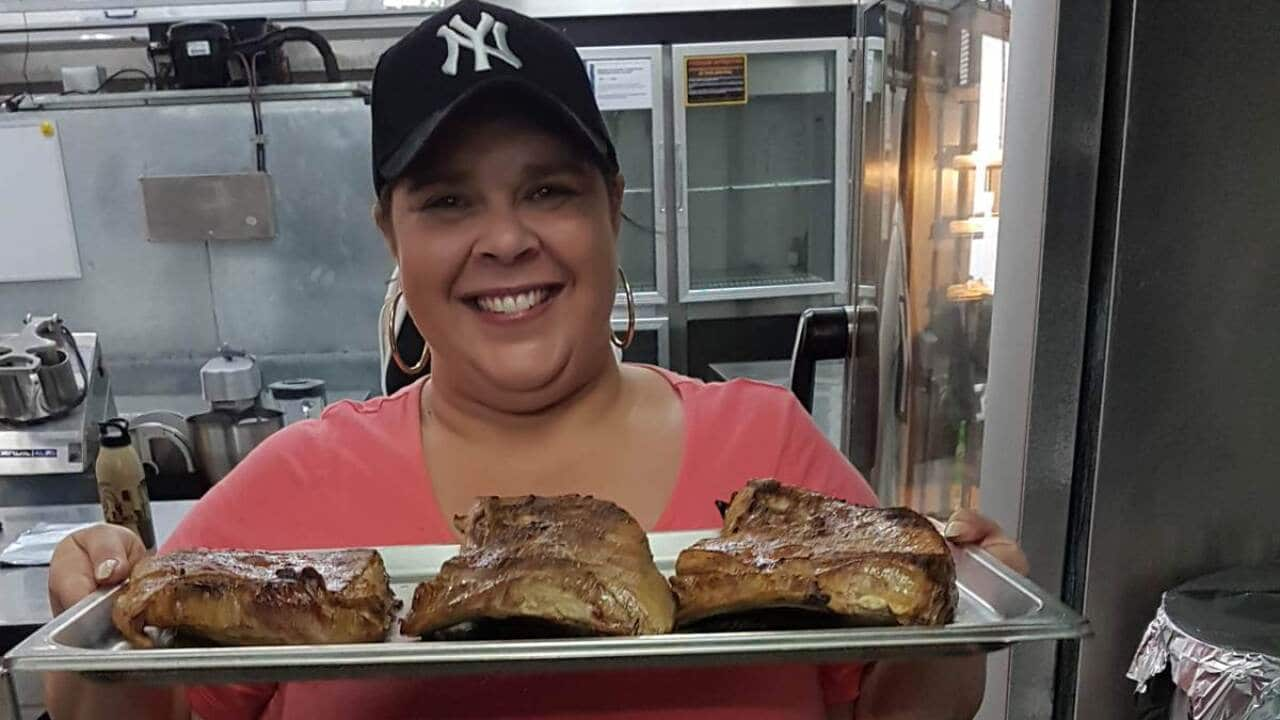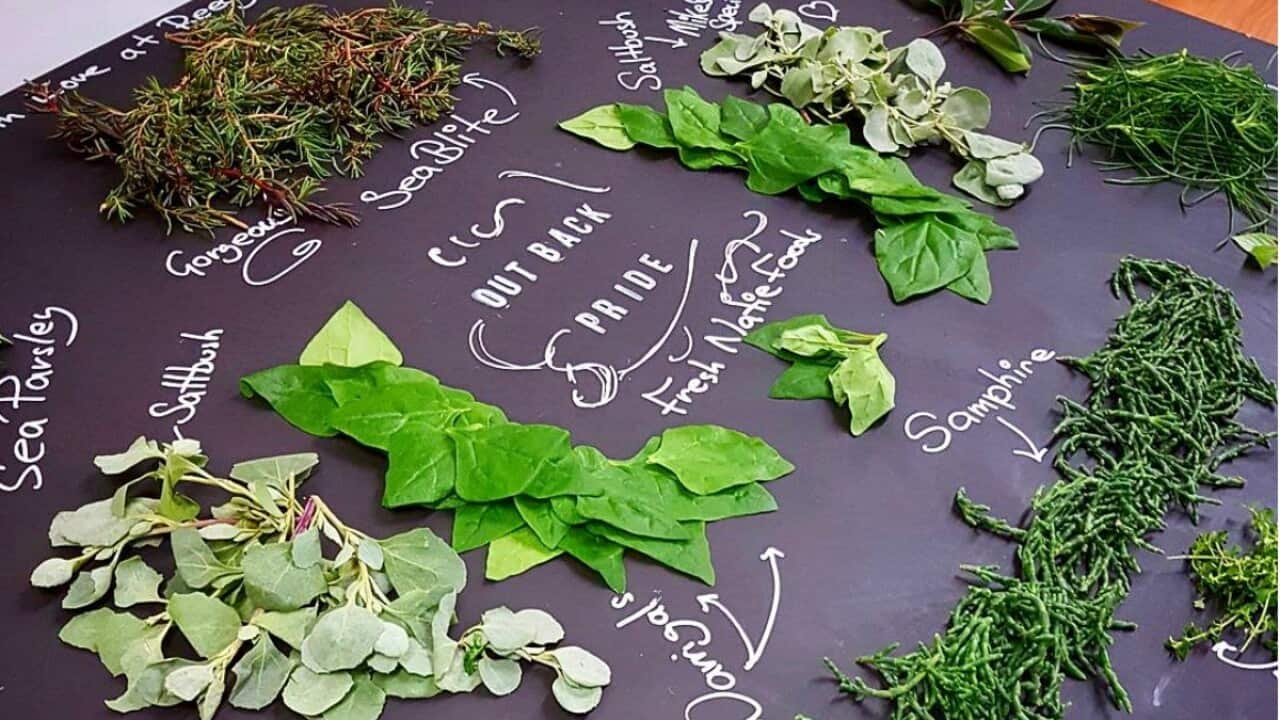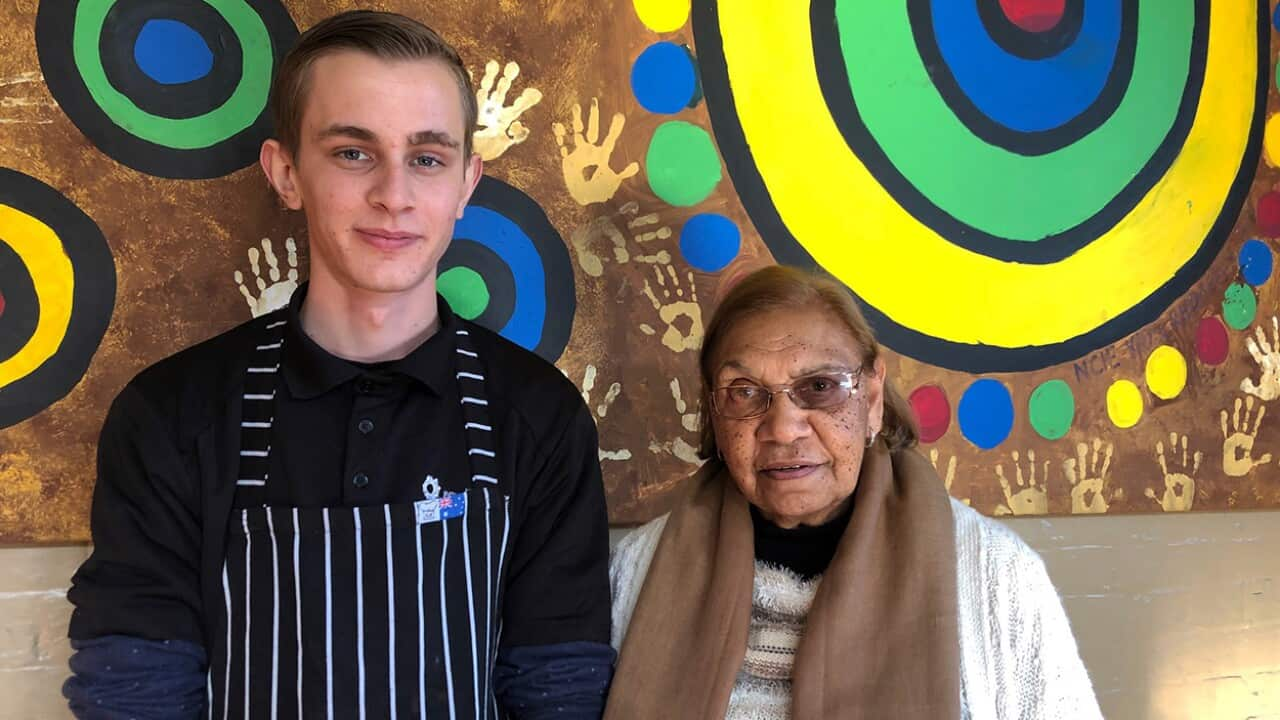Renowned for her knowledge of traditional bush food and Aboriginal cooking techniques, Jody Orcher, is on a mission to raise more awareness about cultural knowledge.
Jody was born into a large family in Brewarrina, northwest of NSW, where she had a strong connection to the land. Her family relied on the environment as a source of food and ate according to the seasons.
"Food is such a big part of our culture and Country where we are," Jody says. "It would always be an exciting event, and everyone would come over and share food."
AUSTRALIA'S INDIGENOUS FOOD
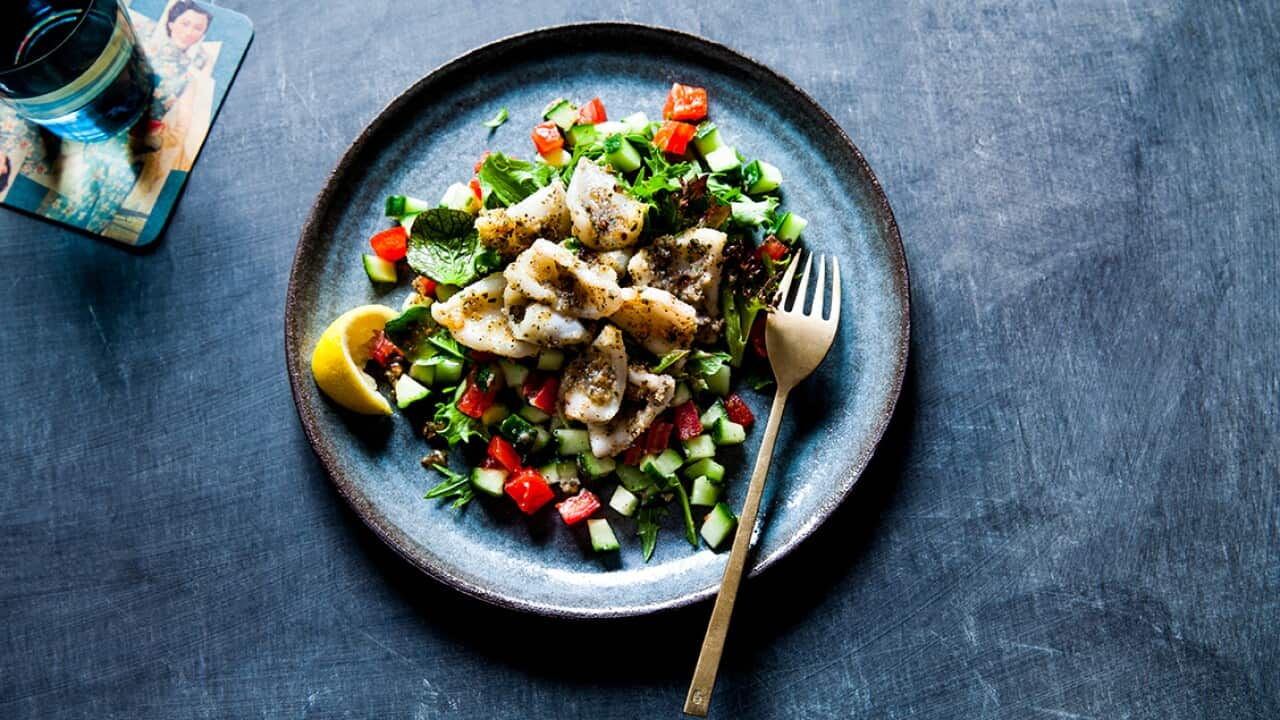
13 recipes that celebrate Australian bush foods
The women were responsible for creating these hearty feasts, while the men sourced the meat. The whole dish would then be centred around protein with veggies and salad on the side. Emu, kangaroo, porcupine and sheep made regular appearances at the table, but fresh seafood was Jody's favourite.
If her father, uncle or cousins went down to the river to fish, the rest of the family would follow.
"My earliest memory, I must have been about four or something, and I was in the boat with my uncle, and I caught a really big yellow belly," Jody recalls. "I was so happy and excited because it was the first time I ever caught a fish and everyone was so happy for me. Then I dropped it..."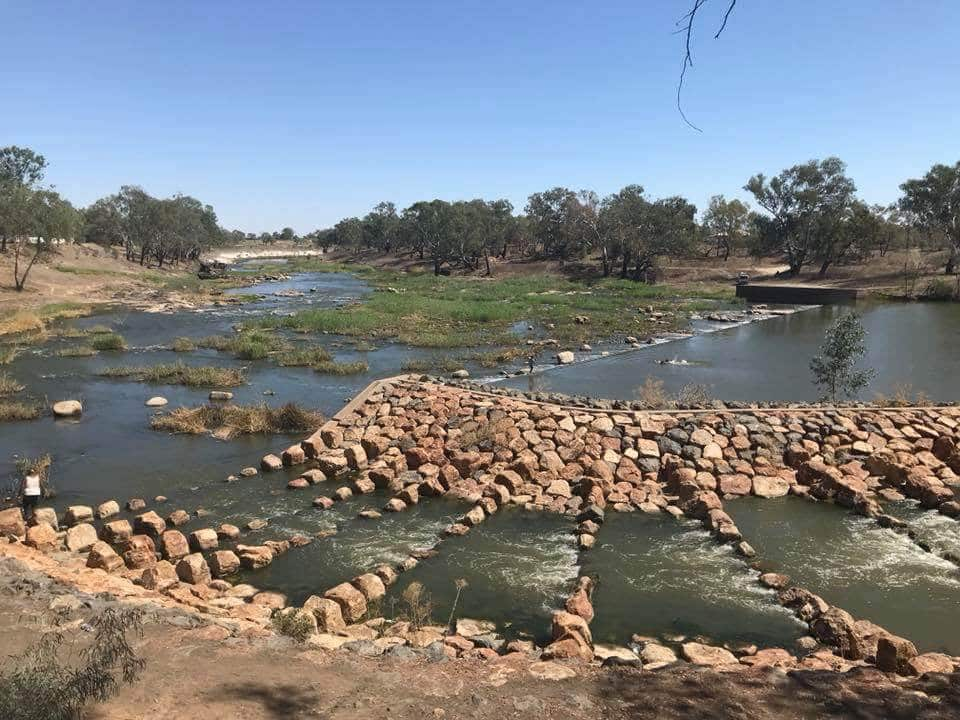 From then on, Jody would always accompany her family on their river trips, spending hours catching crayfish, yabbies, Murray cod and golden perch, which they call yellow belly. Often, she'd be required to help assemble the shrimp bucket which was used as bait, but she also came to learn the joys of eating this small crustacean.
From then on, Jody would always accompany her family on their river trips, spending hours catching crayfish, yabbies, Murray cod and golden perch, which they call yellow belly. Often, she'd be required to help assemble the shrimp bucket which was used as bait, but she also came to learn the joys of eating this small crustacean.

Barwon River in Brewarrina - home of the fish traps. If Jody Orcher's father went down to the river to fish, the whole family would follow. Source: Supplied by Jody Orcher
"Me and my uncle, we were down at the riverbank and we had so many shrimps in the shrimp bucket so he said, 'I will cook the shrimp'," Jody recalls. "He just shoved some butter in the pan and then he just chucked in paprika, garlic, onion and peppercorn…they were the most delicious, beautiful thing ever, so I always eat shrimp now."
Food is such a big part of our culture and Country where we are.
Jody was also provided with a wealth of knowledge and learnt many cooking skills from her grandmother. She got started in the kitchen making Johnny cakes and damper, where more flour would end up on the floor than in the bowl. However, she slowly progressed to making jams, syrups and cakes using bush food that her grandmother would send the grandchildren out to collect. Learning how to sustain herself with food provided by the land was never an active choice for Jody.
Learning how to sustain herself with food provided by the land was never an active choice for Jody.

Jody's grandma taught her how to make Johnny cakes and damper. Source: Supplied by Jody Orcher
"A lot of people always ask me how I know things and I guess it was just our lives, how we lived," she explains. "There was all this knowledge that I didn't know that I was collecting along the way."
Over time, Jody realised more people were interested in learning about the food she ate growing up. She had always been proud of her culture but never gave too much thought to the traditional customs because they were part of her lifestyle and something simply passed down over generations.
CONNECTING TO CULTURE
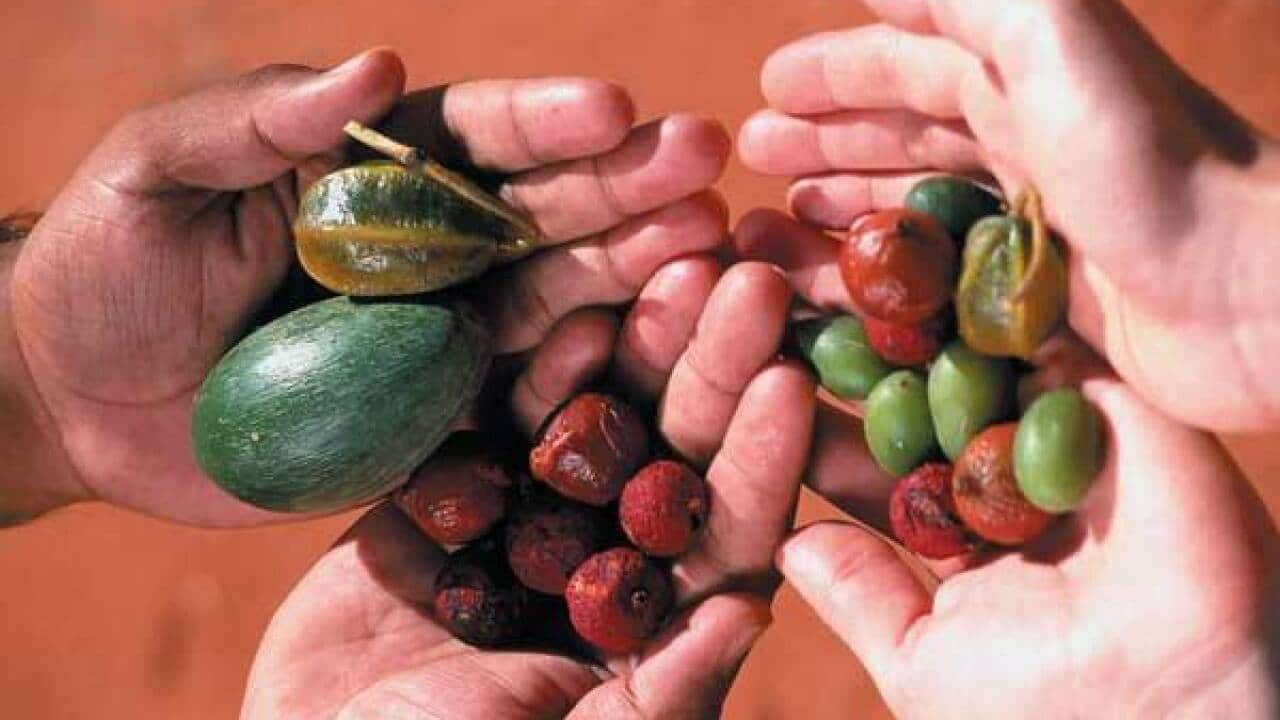
Eating bush foods has helped me reconnect to my Indigenous culture
It was in 2007 that Jody started investigating the way Aboriginal peoples' cultural knowledge is protected. She accepted a job with NSW National Parks and Wildlife Service because she lived close by, but this is where she developed patency for cultural knowledge.
"I worked with these Aboriginal discovery rangers who were interpreting country… I was thinking, 'where's the protection for their information?'," she explains. "And there was so much information…from customs and traditions to the value and medicinal qualities and nutrition of the food." Jody committed to finding a way to learn and share the customs and cultural knowledge of the Aboriginal people who owned them and relied on them for survival. She started by researching the availability of bush food in Australia and was shocked to find that the people talking about native food were mostly non-Aboriginal.
Jody committed to finding a way to learn and share the customs and cultural knowledge of the Aboriginal people who owned them and relied on them for survival. She started by researching the availability of bush food in Australia and was shocked to find that the people talking about native food were mostly non-Aboriginal.

Ruby saltbush berries are nutritious with a sweet and salty flavour. Jody hopes that more people will appreciate the history of native food in Australia. Source: Supplied by Jody Orcher
Jody was also alarmed at the commercialisation of traditional food such as lemon myrtle, which she could find at every second shop in the form of a fragrance or spice. There was minimal respect being given to the history behind Indigenous food customs.
"[Bush food] can be used in ways of medicines, nutrition and survival, for different plants and animals, different times seasonally," she explains. "All of that knowledge…the nutritional value of a lemon myrtle tree or the medicinal values of how it was used traditionally, still belongs to Aboriginal people."
LEARN MORE ABOUT AUSTRALIAN BUSH FOOD
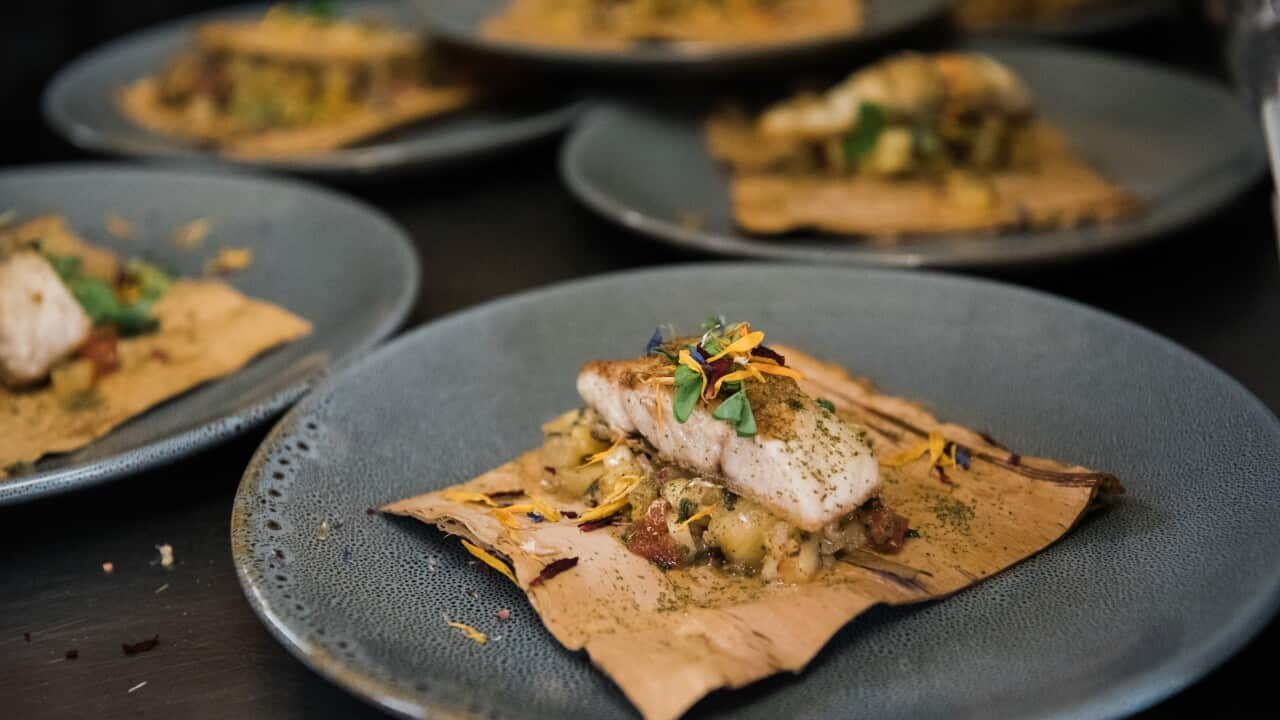
Celebrating Indigenous cultures with bush food and storytelling
Through her work, she's trying to encourage people to consider this misappropriation and use of cultural knowledge.
"If people are using cultural knowledge to harvest or grow their own crops or finger limes, well then I'd like them to recognise and demonstrate their respect by providing Aboriginal people with an economic opportunity for employment and land management," she says. Jody also advocates making cultural food more accessible to Aboriginal people, both on Country and in local shops.
Jody also advocates making cultural food more accessible to Aboriginal people, both on Country and in local shops.

Indigenous Australians value quandongs for their medicinal properties. Jody hopes more Indigenous Australians will get behind native food businesses. Source: Supplied by Jody Orcher
"When you're on Country you have access to all these foods, but when you're in the city…sometimes they don't even sell it or it costs like $30 a kilo and so our foods become less and less accessible," she says.
Jody is happy to teach people about cultural protocols and working with native Australian bush foods for nutrition, medicine and survival.
"You must be respectful, and I always ask permission," she says. "But I don't share any customs and traditions that don't belong to me and I'll only share what is already known to the general public."
Whether it be desert, alpine, rainforest or coastal area…get to know the Aboriginal people, Country and what they use.
Recognising cultural protocols and roles and responsibilities as an Aboriginal person, she understands that it's not her position to share any sacred information. However, Jody is hoping to help Australians get to know their Country and the food around them.
"Whether it be desert, alpine, rainforest or coastal area…get to know the Aboriginal people, Country and what they use," she says. "The different plants and animals…it's about recognising where you live, and what's there on Country."
She also wants to continue sharing this knowledge and these stories with her cousins, aunties and uncles, and ensure the continuation of cultural renewal within her family.
"When we come home, we'll get together for food, we'll go down the river and do things so all those things are really never lost," she explains. "It's just a different cycle of generations now that you share information with." Sharing knowledge, sharing food and sharing stories is the Aboriginal way of life and something she will take pride in doing for generations to come.
Sharing knowledge, sharing food and sharing stories is the Aboriginal way of life and something she will take pride in doing for generations to come.

Murray cod with native mint and finger lime - an example of Australia's creative native dishes. Source: Supplied by Jody Orcher
"I'm very proud Ualarai Barkandjiwoman, I'm very proud of where I come from, I'm proud of my heritage with my family."
Food is a timeline of Australian history and Indigenous Australians have been using this cooking yellow belly recipe since colonisation, with the introduction of flour.
Rations of flour, potatoes, onions, salt and pepper, and mutton were given to Aboriginal people during the 1930s. During Australia's white assimilation policy, fishing was the only way to ensure there was enough food to feed the family and also maintain some connection to Country and culture.
Love the story? Follow the author Melissa Woodley here: Instagram . Photographs supplied by Jody Orcher.
Native pepper shrimp with fried yellow belly
Serves 4
Ingredients
Native pepper shrimp
- 500 g freshwater shrimp
- 50 g butter
- Salt and fresh peppercorns
- Paprika
- 1 garlic clove
- 1 onion
Method
- Fry butter off in a pan.
- Place in onions and garlic and cook for 2 minutes.
- Add paprika, shrimps, salt and pepper. Cover with lid and cook for 5 minutes.
- Serve - delicious with Johnny cakes.
Fried yellow belly
- 500 g dripping
- 2 cups plain flour
- ¼ cup salt
- ¼ cup pepper
- 1 yellow belly – golden perch freshwater fish
- Lemon
- Brown vinegar
Method
- Scale fish.
- Place drippings in the pan and melt.
- Cut the yellow belly into pieces.
- Place flour in a bowl and mix in salt and pepper.
- Place cut pieces of yellow belly in flour covering the whole piece. Repeat for all pieces.
- Place in a heated pan with dripping, cooking until golden brown, at least 3 minutes each side depending on the size of the fish.
- Place cooked fish on a paper towel to drain excess oil.
- Serve with a slice of lemon or brown vinegar for dressing and a side salad.
CELEBRATING NAIDOC WEEK

Kakadu plum: The story of this Indigenous Australian superfood

